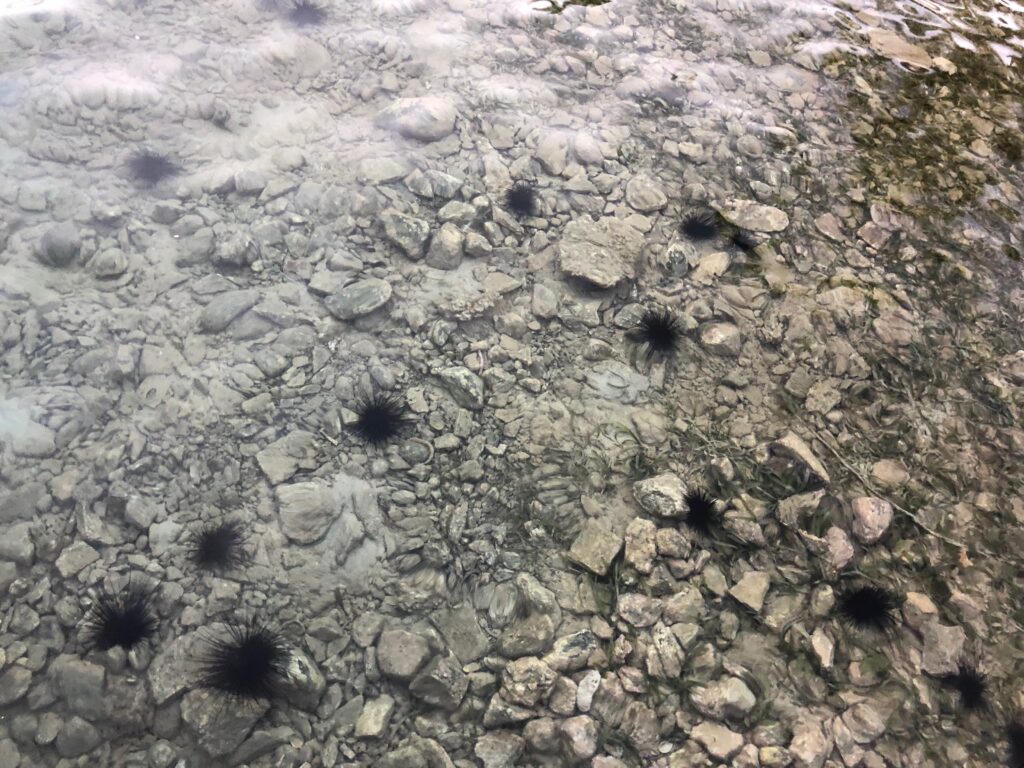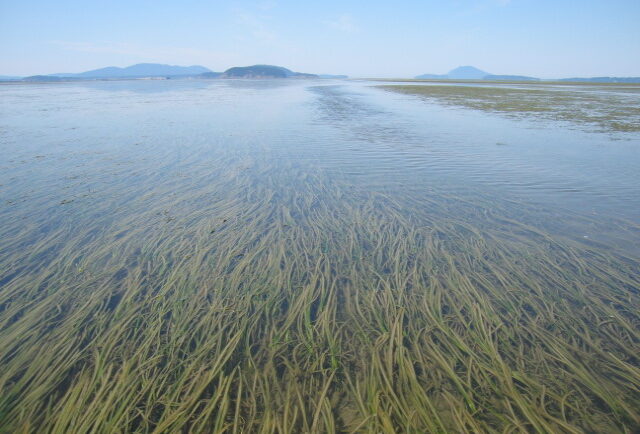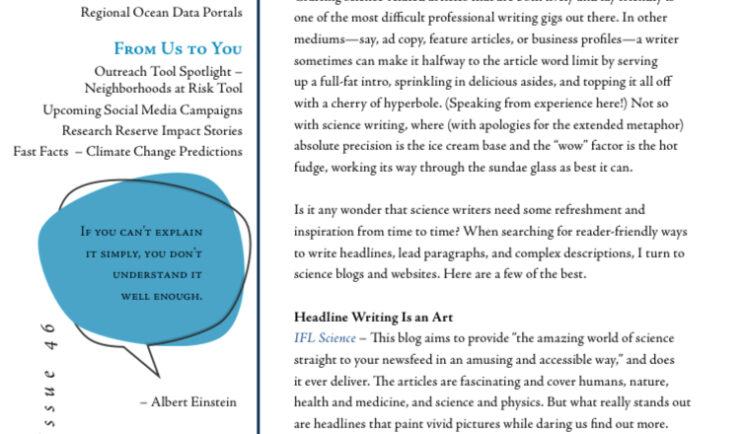

A diver collects a long-spined sea urchin. Credit: Blake Gardner
Our employee owners were recently part of a team of detectives on a mission to discover the killer of long-spined sea urchins, Diadema antillarumy, throughout the Caribbean Sea. The infected urchins lose their spines, leaving them more vulnerable to predation or dying after a few days. In 1983 the same species experienced mass mortality with identical symptoms, but scientists were unable to discover the culprit. Forty years later, the issue resurfaced, and a team of scientists joined forces to unlock the mystery.
CSS employee owners, supporting NOAA’s Coral Reef Conservation Program and NOAA’s Office for Coastal Management, joined a team of scientists in diving to collect urchin samples at 23 sites around the Caribbean Sea. By providing the samples, the researchers were then able to examine and test the urchins and compare them to healthy urchins to determine the cause of the mortality.
Due to this rapid response, scientists determined the cause of the issue within three months
Our staff coauthored this paper documenting the process. https://www.science.org/doi/10.1126/sciadv.adg3200

Researchers examine a long-spined sea urchin. Credit: Leslie Henderson
See More CSS Insights

World Seagrass Day!
Seagrasses are critical to coastal and ocean ecosystems, protecting coastlines from erosion, stabilizing ocean sediment, and improving water clarity. They provide food and shelter for aquatic life, including seahorses, turtles, thousands of species of fish, and more. In addition, they are amazing carbon sequesters, meaning they absorb atmospheric carbon reducing greenhouse gases. On World Seagrass Day, we…

Contributing to an Award-Winning Newsletter
Congratulations to the communications team at the National Oceanic and Atmospheric Administration’s (NOAA) Office for Coastal Management on their award-winning publication, Coastal Communicators. As part of a subcontract with Lynker, our communication staff contribute to this monthly publication to help share tips, lessons learned, and best practices with other communicators and coastal programs who don’t…

CSS Employee Owners Receive NOS Team Member of the Year Awards
Congratulations to two CSS Employee Owner who received a National Ocean Service (NOS) Team Member of the Year Award for their dedication and hard work over the past year. One employee owner received an NOS Team Member of the Year Group Award as part of Team Lynker, the prime contract company with NOAA’s Office for…
